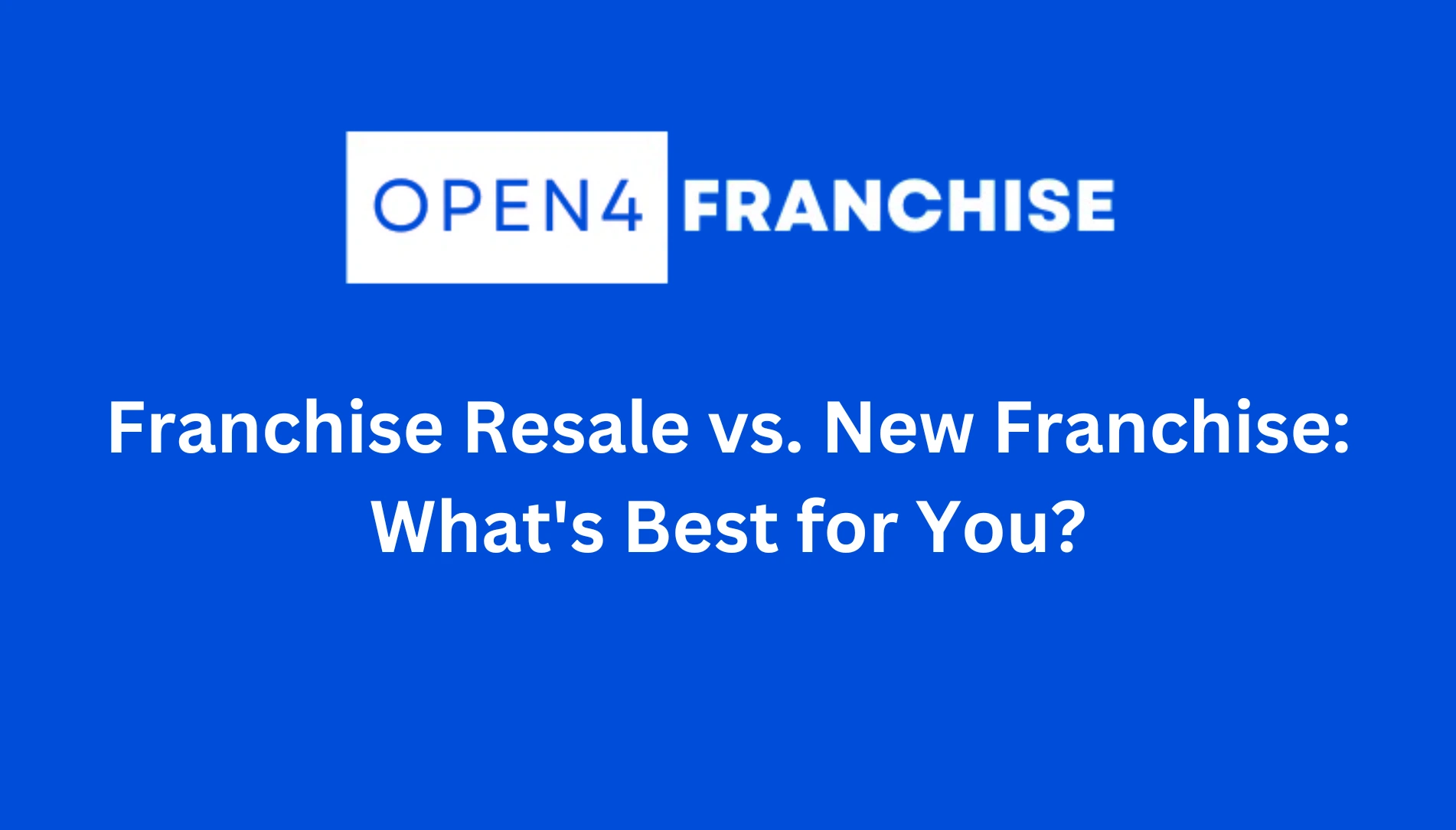Starting your journey as a franchise owner is an exciting decision, but choosing between a franchise resale and a new franchise can be challenging. Both options offer unique benefits and challenges, so how do you decide which is best for you?
This article will break down the differences, advantages, and drawbacks of franchise resales and new franchises to help you make an informed choice.
1. Understanding the Basics
1.1. What Is a Franchise Resale?
A franchise resale occurs when an existing franchise owner decides to sell their established franchise location. The buyer takes over the operational business, inheriting its assets, employees, and customer base.
1.2. What Is a New Franchise?
A new franchise involves starting a franchise location from scratch. The franchisor provides guidance, but the owner is responsible for setting up the business, hiring staff, and building a customer base.
2. Advantages of a Franchise Resale
2.1. Established Customer Base
One of the biggest perks of a franchise resale is inheriting an existing customer base. You don't have to start from zero, which can lead to quicker revenue generation.
2.2. Proven Performance
You can analyze the location’s financial performance before purchasing, reducing risks.
2.3. Operational Structure in Place
Resale franchises often come with trained staff, existing equipment, and set processes, saving time and effort.
3. Advantages of a New Franchise
3.1. Freedom to Customize
With a new franchise, you have more control over staff hiring, location setup, and local marketing strategies.
3.2. Lower Initial Investment
While resales can come with a hefty price tag due to goodwill and existing assets, new franchises often have lower initial costs.
3.3. Fresh Start
A new franchise allows you to build the business your way without inheriting any potential baggage like customer complaints or operational inefficiencies.
4. Challenges of a Franchise Resale
4.1. Hidden Issues
Resale franchises might come with undisclosed problems like outdated equipment, poor staff performance, or customer dissatisfaction.
4.2. Higher Upfront Cost
Since you’re buying an established business, the initial investment can be significantly higher than starting fresh.
4.3. Transition Challenges
Taking over an existing team and customer base can lead to challenges in managing expectations and maintaining standards.
5. Challenges of a New Franchise
5.1. Building from Scratch
Starting a new franchise requires significant effort to establish a brand presence and attract customers.
5.2. Longer Time to Profitability
It can take months or even years to break even, depending on the industry and location.
5.3. Learning Curve
Without an operational structure in place, new franchise owners may face a steep learning curve in managing the business.
6. Key Factors to Consider When Choosing
6.1. Your Budget
- Resales often require higher upfront investments.
- New franchises might fit better if you’re working with a tighter budget.
6.2. Your Experience
- If you’re a first-time entrepreneur, a resale might offer the stability of an established setup.
- Experienced business owners might prefer the flexibility of starting from scratch.
6.3. Location and Market Demand
- Evaluate the location of the resale and its market potential.
- For new franchises, research untapped areas where your chosen brand can thrive.
7. Questions to Ask Before Buying a Franchise Resale
- Why is the current owner selling?
- What is the franchise’s financial history?
- Are there any pending debts or disputes?
- What is the condition of equipment and infrastructure?
8. Questions to Ask Before Opening a New Franchise
- What is the brand’s market reputation?
- Does the franchisor provide comprehensive training and support?
- How long does it typically take to break even?
- Are there any location restrictions for opening a new franchise?
9. Success Stories
9.1. A Successful Resale
Ajay Sharma purchased a franchise resale of a popular café in Delhi. Within six months, he doubled its revenue by leveraging the existing customer base and improving service quality.
9.2. A Thriving New Franchise
Neha Singh started a new preschool franchise in Bangalore. Although challenging initially, her marketing strategies helped her achieve full enrollment within a year.
10. Conclusion
Choosing between a franchise resale and a new franchise depends on your goals, budget, and experience. Resale franchises offer stability and quicker returns but often come with higher costs and potential challenges. New franchises, on the other hand, allow for greater control and a fresh start but require more effort to establish.
Evaluate your priorities and do thorough research before making a decision. Both paths can lead to success with the right approach and dedication!
FAQs
1. Is a franchise resale better for beginners?
Yes, it can be easier for beginners as the business is already operational and has an existing customer base.
2. Are new franchises riskier?
They can be, as you’re starting from scratch, but strong support from the franchisor can mitigate risks.
3. What should I look for in a resale franchise?
Focus on its financial history, customer base, and reasons for sale.
4. Can I negotiate the price of a franchise resale?
Yes, you can often negotiate based on the business's condition and potential challenges.
5. Which option is more profitable?
Profitability depends on factors like location, industry, and how well the business is managed, rather than whether it’s a resale or new franchise.
